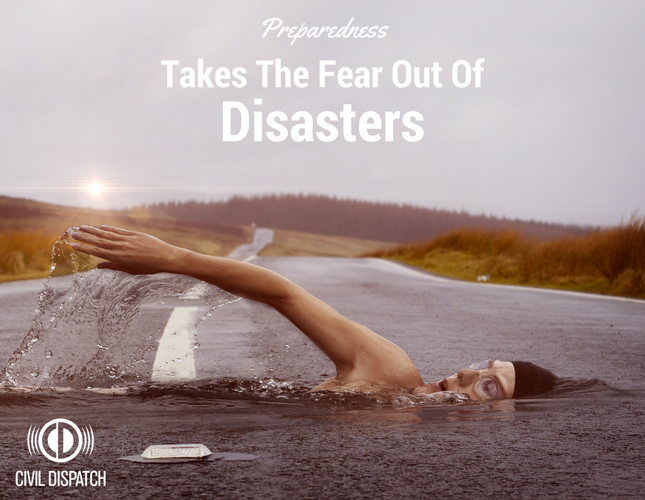
FEMA and their Ready.gov website now promote personal preparedness. The agency recommended that all homes be ready for emergencies with a supply of no less than two weeks of food & water :
“If an earthquake, winter storm, or other disaster strikes your community, you might not have access to food, water and electricity for days or even weeks.
By taking some time now to store emergency food and water supplies, you can provide for your entire family.”
Not only is this smart planning, but it also provides an added benefit to you and to your family - Peace of mind.
Disasters Should Only Be An Inconvenience
If preparedness isn’t taken seriously (or into consideration at all), disasters of any kind can cripple you. Yes, physically, but also emotionally and financially. A little planning can help those short-term disaster scenarios play out much differently for you and your family.
Imagine, you and your family are struck by a disaster - a biological threat, chemical threat, cyber incident, drought, earthquake, explosion, extreme weather condition/fluctuation, fire, flood, hurricane, a pandemic event, power outage, tornado, or other catastrophic event. And you are two weeks from help.

What Would Your Family Need For Two Weeks?
There are three major things to plan for - and preparing in advance also ensures that your finances won’t take a hit with last-minute preparedness.
- Drinking water.
A basic rule of thumb is 1 gallon of water per person per day. This is for consumption only. Plan on more for cooking, hygiene, etc.
- Lack of electricity.
With most natural or widespread disasters, there is a power outage or lack of reliable electricity. Don’t panic. In your preparedness supplies, try to find food that is either shelf-stable and doesn’t need any cooking or that you can cook with an alternate method (and, of course, you’ll need to make sure you have that alternate method on hand, too).
- Food.
Create an emergency menu. Not only does this help with budgeting and organizing, but it also can be a great activity where kids can help with the planning. One note from a prepping mom included: “Two gifts of this type of prepping - convenience and familiarity. No elaborate meals - because there may not be the time or the occasion. Stick with foods your family knows and likes.”
Using just these three as a list for the beginning of your family’s preparedness plan is a great start!
Looking for more tips on beginning a preparedness plan for your family? Check out The Prepper’s Blueprint by Tess Pennington